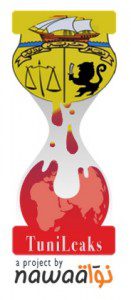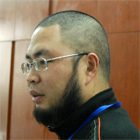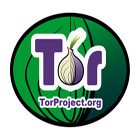Awards judge David Rowan introduces the nominees for the Index on Censorship New Media Award, supported by Google
In a year when WikiLeaks held government activities to unprecedented scrutiny, and Facebook and Twitter empowered citizens in articulating their concerns, the judges sought to honour those especially courageous internet activists who braved hostile conditions to promote free expression. Wen Yunchao, based in Guangdong, has taken huge risks to become one of China’s most outspoken bloggers and campaigners for free speech – not least by organizing a Twitter “Empty Chairs” protest to mark Liu Xiaobo’s winning the Nobel Peace Prize. The activists behind TuniLeaks – a collaboration between Nawaat.org and WikiLeaks – confirmed with cold documents the widely criticised corruption of President Ben Ali’s regime, and helped focus public discontent. The judges recognised the long-term role played by the Tor Project as a means of helping activists bypass traditional censors – whose impact was evident in huge traffic spikes as protests grew in Egypt and Tunisia. Finally, the judges wanted to pay special tribute to Wael Ghonim, a local Google employee detained for 11 days by the Egyptian police, who was revealed to be the administrator of the Facebook page “We are all Khaled Said”. Named for a young businessman who died in Egyptian police custody, the page became a rallying point in the popular uprising.
TuniLeaks by Nawaat
 TuniLeaks is a selection of the WikiLeaks State Department cables published by Nawaat.org, an independent group blog run by Tunisian net activists.
TuniLeaks is a selection of the WikiLeaks State Department cables published by Nawaat.org, an independent group blog run by Tunisian net activists.
TuniLeaks, like its parent site Nawaat, is entirely independent and does not receive funds from any political party.
The TuniLeaks cables revealed the extent of the corruption deeply entrenched in many aspects of Tunisian life. Despite attempts to block the site, news of the cables being released swiftly spread around the country and Nawaat helped informal media networks link communities that had been cut off by government censors.
Nawaat highlights how important transparency is in a country like Tunisia, where citizens had for so many years been cut off from vital information and dialogue. “The aim is to get everyone to read, to get an idea and give meaning to the facts provided,” the website states. “The debate is open.”
Tor enables whistleblowers, dissidents and activists to communicate safely.
It began as The Onion Router project in 2002, originally sponsored by the US Naval Research Laboratory. Among its founders are Roger Dingledine, Nick Mathewson and Paul Syverson.
Designed to increase privacy and security, internet users are able to access censored sites via a third party and conceal their browsing history. Communications via instant messaging are similarly protected. The Tor system is continuously updated and developed in order to address the vulnerability inherent within web-based systems. The software “does not modify, or even know, what you are sending into it”, the Tor site states. “It merely relays your traffic, completely encrypted through the Tor network and has it pop out somewhere else in the world, completely intact.”
The use of Tor technology in Egypt increased fourfold in the weeks leading up to the overthrow of Hosni Mubarak, and a similar pattern was seen in Tunisia.
Wen Yunchao
 Wen Yunchao is a Guangdong-based internet activist. Writing for platforms including the now banned bullog.cn, Wen established himself as one of China’s best-known bloggers under the alias Bei Feng. He started his career as a news reporter before becoming the editor of Guangzhou’s Yangcheng Evening News website. In 2009, Wen left to research internet censorship. He has spoken about his work as a censor and member of the “50 cent” group (state-funded commenters paid 50 cents for every pro-government comment).
Wen Yunchao is a Guangdong-based internet activist. Writing for platforms including the now banned bullog.cn, Wen established himself as one of China’s best-known bloggers under the alias Bei Feng. He started his career as a news reporter before becoming the editor of Guangzhou’s Yangcheng Evening News website. In 2009, Wen left to research internet censorship. He has spoken about his work as a censor and member of the “50 cent” group (state-funded commenters paid 50 cents for every pro-government comment).
Wen now works to remove restrictions on information and champions freedom of speech. When Southern Weekly editor Chang Ping was fired in early 2011, Wen Yunchao helped spread the word, organising netizens to donate to Chang Ping’s account to show their support. He also organised Twitter’s “empty chairs” event to mark Liu Xiaobo winning the Nobel Peace Prize.
Wen was among the second group of signatories of Charter 08, the manifesto signed by more than 350 Chinese intellectuals and human rights activists.






